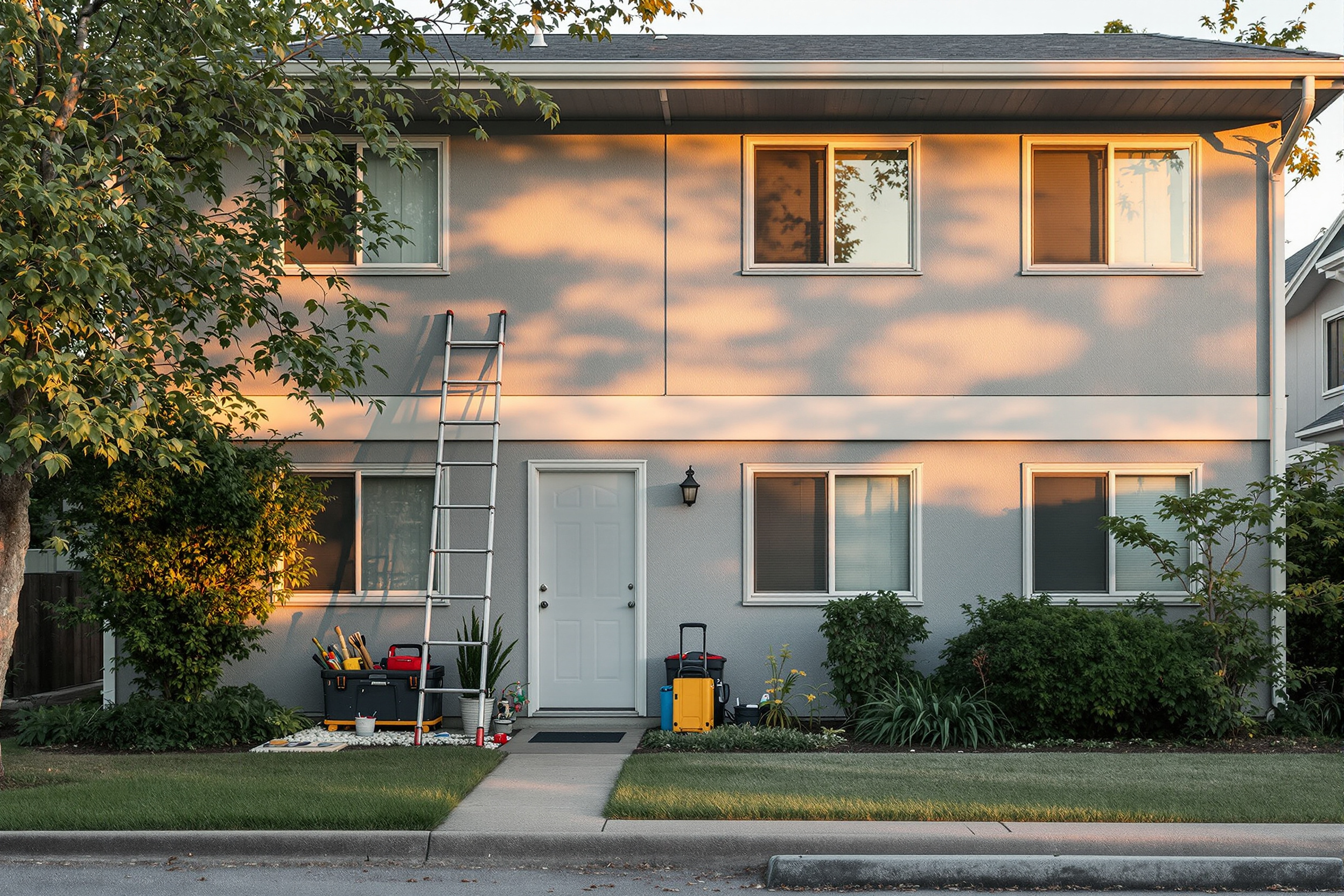Ask two landlords to give you their thoughts on allowing tenants to have a cat and you’re likely to get two very different answers.
While you may attract a larger tenant pool by allowing this type of pet, there’s no denying that cats also come with a risk of damage to your property.
This article will explore how cats can damage rental properties, what precautions you should take as a landlord to protect your property from damage caused by felines, and what to do if damage does occur.
Common Types of Cat Damage to Rental Property
Nearly 32 million households in the US have a cat as a pet. As a result, you'll likely have a prospective tenant with a cat. Having a pet-friendly rental can be a great way to increase your monthly rental income. However, you should know what you're getting into before accepting or rejecting the tenant.
There are a few ways a cat could damage your property:
- Scratching: Cats like to scratch, whether it be on furniture or walls. This trait is normal behavior that you or your tenants can mitigate by providing scratching posts in the rental property.
- Chewing: Felines may chew on baseboards, window frames, curtains, and electrical cords, which can create an additional expense if repairs are needed.
- Urinating: When stressed or anxious, cats often urinate in inappropriate places, such as carpets and furniture. This type of damage sometimes requires professional cleaning services to remove odors, especially if there have been “repeat offenses.”
- Shedding: Cats shed fur throughout their lives. However, some cats, such as Maine Coons and Persians, shed more than others. Cat fur can accumulate in air vents and filters. If not removed, it can lead to costly HVAC repairs.
- Leftover litter residue: When tenants neglect to regularly empty and maintain their cat litter boxes, cat urine and feces can become embedded in the carpet or flooring. Removal requires deep cleaning to eliminate lingering smells and ensure no health risks remain.
%2520(1).png)
How to Avoid Damage from Your Tenants’ Cats
Here are some tips for minimizing the risk of damage if you decide to make your rental property feline-friendly.
Establish Cat-Specific Rules in The Lease Agreement
In your lease, outline the type and number of cats allowed in the rental. Additionally, include a clause that holds the tenant responsible for any damage caused by their pet. Explain what damage you will look for and how it will be addressed or repaired.
Consider Pet Fees and Rent
Charging a pet fee or increasing rent for tenants with cats is a good way for landlords to cover any costs due to damage caused by the animals. It can help protect your property if repairs are needed, and it’s also an incentive for tenants to take better care of their pets and your home to minimize the risk of damage.
Pet fees and rent should be reasonable, and landlords should discuss these terms openly with prospective tenants before signing the lease agreement.
Be Proactive About Inspecting and Managing Cat Damage
Staying on top of inspections is the best way to protect your property from cat damage. Regularly inspect the rental unit for any signs of pet damage and promptly address any issues.
Talk to your tenants about how they’re taking care of their felines. Ensure they’re following the rules in the lease agreement. If problems arise, take fast action to avoid more extensive damage.
Require Renters Insurance
Renters insurance is a type of insurance that is intended to cover the tenant’s personal property and liability in the event a covered loss occurs.
By requiring tenants with cats to obtain renters insurance, you can help protect yourself from unexpected costs due to cat-related damage. However, not all states allow landlords to make renters insurance mandatory, so check local landlord-tenant laws before including the requirement in your lease.
FAQs for Renting to Tenants with Cats
Q: How should I approve a tenant with a cat?
A: The best way to protect your property is to conduct a thorough background check and credit report and speak with previous landlords. You should also ask the tenant for evidence of their cat's vaccinations and other relevant documents. Set clear expectations around pet ownership in the tenancy agreement.
Q: Should I charge extra for pets?
A: It’s common for landlords to require an additional security deposit (known as a pet deposit) or a higher monthly fee when renting to someone with pets. Pet fees and rent depend on individual circumstances, local practices, and landlord-tenant laws.
Use discretion and research market norms when deciding on the appropriate deposit amount and a rent increase.
Q: Are there any laws I should know?
A: Laws about renting to tenants with cats and other pets vary from state to state. Familiarize yourself with local legislation before setting any rules or regulations around pet ownership. Also, be aware that all rules in the tenancy agreement must comply with fair housing laws.
Q: What should I do if a tenant breaks the rules?
A: If a tenant violates the terms of their rental agreement by owning an unauthorized pet, take appropriate action by following the notice and eviction process outlined in your lease and the state's landlord-tenant laws. Document all violations thoroughly so you have evidence to support your case if the situation ends up in court.
Q: Are there ways to ensure my tenants are responsible pet owners?
A: Encouraging your tenants to spay or neuter their cat is a great way to ensure the animal is healthy and unlikely to cause disturbances. Encouraging responsible practices, such as regularly scooping litter boxes, can help control odors and pests.
Q: How do I handle renters who don't care for their cats?
A: Set clear expectations around cat ownership in the lease and enforce any rules. If a tenant fails to meet these expectations or neglects to care for their pet, landlords can issue a warning or discuss potential actions to improve the situation.
If this fails, the landlord may need to consider other steps, such as evicting the tenant for violating their lease agreement.
Protect Your Rental Property from Animal Damage
Cats can be wonderful companions for your tenants, but as a landlord, you need to make sure your property is protected in case of damage. If your tenants also own a dog, you’ll want to follow similar procedures to prevent dog damage. You’ll also need to set limits on the total number of animals you allow in the rental.
If cat damage occurs on your property, you can use this tenant repair request letter template to tell your tenants what they need to do to rectify the situation. Remember, transparency is key here. Make sure your tenants know that they are liable for animal-caused damage pursuant to the clause in their lease and explain what that means, and they’ll be more likely to manage their pets responsibly!







